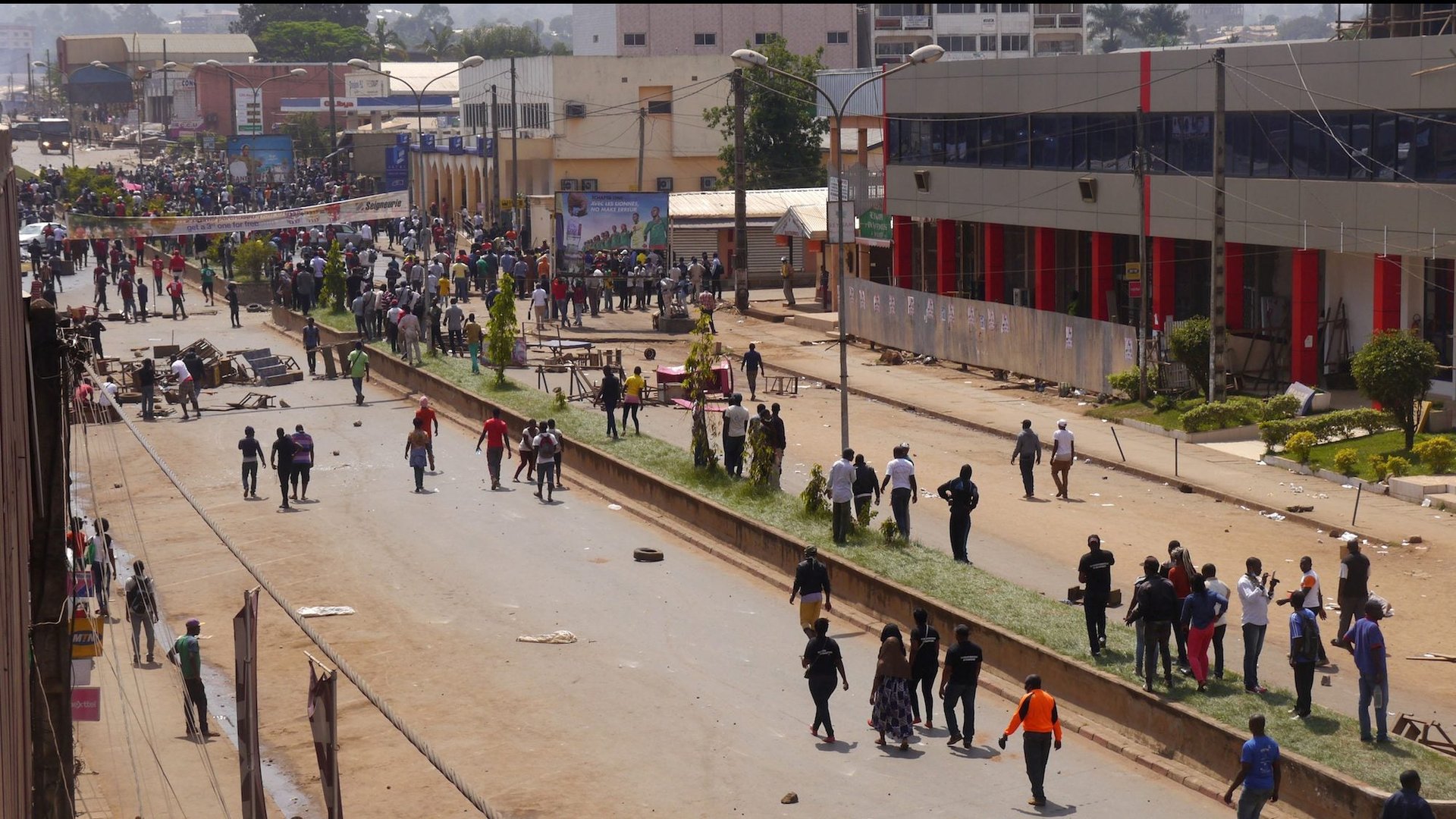English speakers in Cameroon deserted their cities to protest the encroachment of French
In Cameroon, a fight over colonial languages is dividing the country. English-speaking regions of Cameroon, once divided between France and Britain, have been protesting for months against the dominance of the French language—the official language in four-fifths of the central African country. This week, protests reached a new peak as residents of the Anglophone cities stayed home from work and school as part of a strike.


In Cameroon, a fight over colonial languages is dividing the country. English-speaking regions of Cameroon, once divided between France and Britain, have been protesting for months against the dominance of the French language—the official language in four-fifths of the central African country. This week, protests reached a new peak as residents of the Anglophone cities stayed home from work and school as part of a strike.
Clashes during mass protests in November and December left several dead, more than 100 missing, and an undisclosed number of protesters imprisoned. Anglophones account for about 20% of Cameroon’s 23 million people and according to the Cameroonian constitution, both English and French are official languages with ”the same status.” “The State shall guarantee the promotion of bilingualism throughout the country,” the constitution, adopted in 1972, says.
Yet, Cameroon’s president Paul Biya, who has ruled the country since 1982, rarely makes statements in English. Most official documents, public exams, and news from the state broadcaster are in French. Residents from English-speaking regions say they are excluded from civil service jobs. Judges and administrators are often sent to manage court systems in English speaking regions without any knowledge of the language, lawyers complain.
On Jan 9, cities in Anglophone Cameroon, including Bamenda, where the country’s main opposition party was founded, were ghost towns.
In his end of year address to the nation, Biya said he was open to speaking with protesters but that he would never accept any attempt to undermine the country’s unity. The speech was given in French.